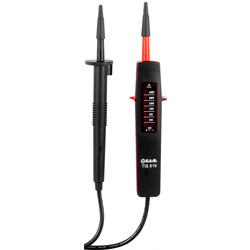- May 17, 2022
- 2
- 0
- 31
- If you're a qualified, trainee, or retired electrician - Which country is it that your work will be / is / was aimed at?
- United Kingdom
- What type of forum member are you?
- Practising Electrician (Qualified - Domestic or Commercial etc)
- If other, please explain
- wales
- Business Name
- A M Electrical
I'm new to this but stuck with an issue, so I'm looking for some help wherever possible. I have just completed a rewire, which I have a potential difference of 60v between MET and disconnected mains earth. It's an RCBO board with type 2 SPD. I have fully tested the installation and have greater than 200M ohm insulation resistance on every live conductor to earth. There are 15 circuits. I have tried to identify the "faulty circuit" initially by testing for voltage between the MET and the disconnected main earth and disconnecting one RCBO at a time. This reduces the potential difference between the MET and disconnected main earth by approximately 2.5-5v. This continues to reduce with the disconnection of each RCBO until 1.5v (induced reading) is shown on meter. It doesn't make any difference on which circuit i disconnect or doing it in any particular order. Once I reinstate each RCBO it gradually climbs back up to 60v. There are no main eqipotential bonds in place due to alkathene services. Ze reading is 0.26/0.955Ka. PME/TNCS supply.
Had a similar fault a few years back where supply transformer was degrading but have been assured by the 4 DNO employees that attended today that this is a different type of supply so not possible in this case but they were unable to find the cause of the fault. Clearly seems like an internal fault, especially as earth spike that was installed by them temporarily showed no potential difference between PME cutout and earth rod. Im confused on how I have the insulation resistance readings I did showing no earth leakage and potential difference dropping incrementally with each circuit. They suggested poor Chinese insulation on cabling allowing small earth leakage on the internal cabling but I'm not buying that.
One final thing. When the house was built, long before the services being installed, I held the underfloor heating plastic pipes which are reinforcedwith steel mesh and I was sure I had a shock. There was no electrical service there at that point and there is a possibility it was static or something else but I know a low voltage shock and that certainly felt like one. May be a red herring but worth mentioning.
I really appreciate any ideas you could send my way. I like a challenge but sometimes I just can't figure it out.
Had a similar fault a few years back where supply transformer was degrading but have been assured by the 4 DNO employees that attended today that this is a different type of supply so not possible in this case but they were unable to find the cause of the fault. Clearly seems like an internal fault, especially as earth spike that was installed by them temporarily showed no potential difference between PME cutout and earth rod. Im confused on how I have the insulation resistance readings I did showing no earth leakage and potential difference dropping incrementally with each circuit. They suggested poor Chinese insulation on cabling allowing small earth leakage on the internal cabling but I'm not buying that.
One final thing. When the house was built, long before the services being installed, I held the underfloor heating plastic pipes which are reinforcedwith steel mesh and I was sure I had a shock. There was no electrical service there at that point and there is a possibility it was static or something else but I know a low voltage shock and that certainly felt like one. May be a red herring but worth mentioning.
I really appreciate any ideas you could send my way. I like a challenge but sometimes I just can't figure it out.









